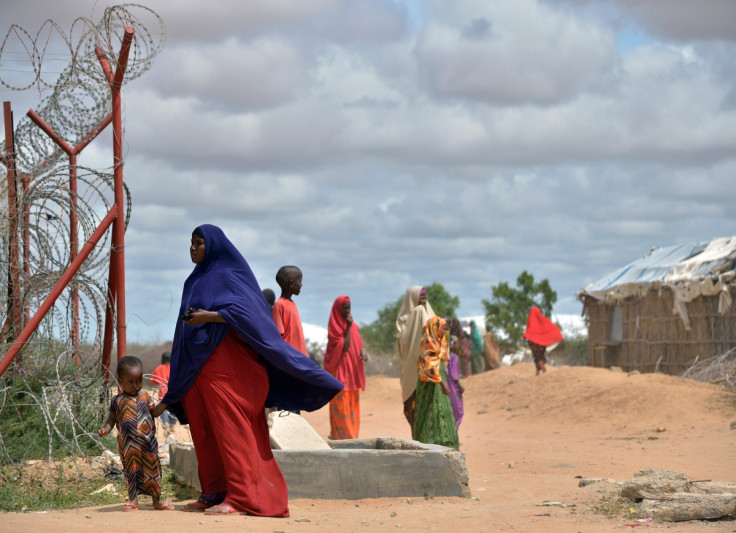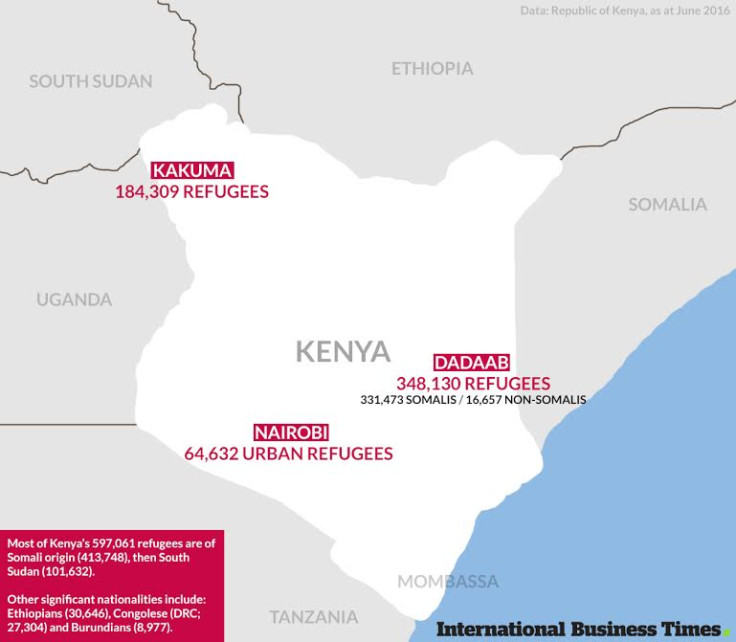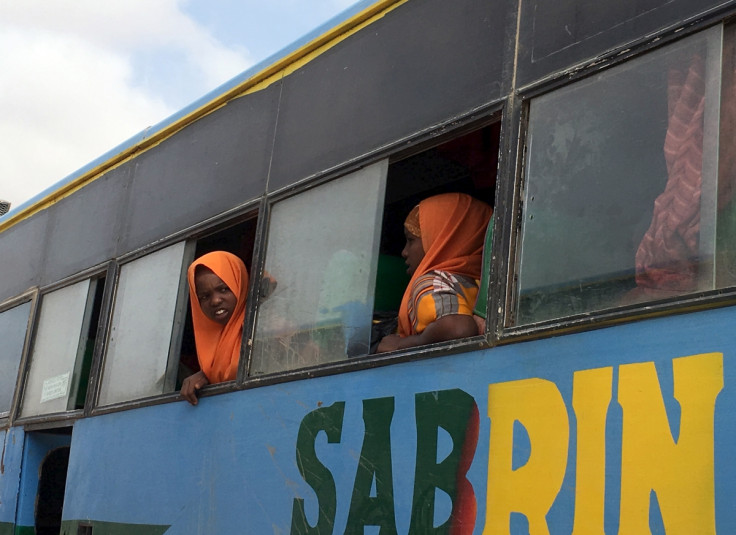Kenya softens its position on Dadaab refugee camp closures and refugees repatriation to Somalia
Camp said to be economic burden and breeding ground for terrorism but will stay open until Somalia stabilises.

Non-governmental organisations (NGOs) have welcomed Kenya's decision to soften its position to close the Dadaab refugee camp this year and send back Somali refugees until Somalia stabilises. For more than 20 years, Kenya has been home to generations of Somalis who have fled their war-torn country, and the Dadaab camp is largely populated by Somali refugees – out of 343,043 refugees currently living in Dadaab camp, 326,611 are Somalis.
The East African nation announced on 6 May its decision to close the camp by 30 November this year after describing them as an economic burden and a "breeding ground" for terrorism.
The authorities' plans to reduce the population of the Dadaab refugee camp by half via the voluntary and alleged forced repatriation of 150,000 Somali refugees by the end of 2016 was expected to put Somali men and woman at risk of serious, and at times deadly, threats.
Interior Minister Joseph Nkaissery on 21 August announced the government would hold back its decision to close the camp until peace in Somalia is restored, and that, while the refugee verification exercise was complete, the repatriation process would take longer given the security situation in neighbouring Somalia.
"We said verification should be completed by the end of July which we have done. I have the report with me. So we are in the right direction. We are just waiting for the world to pacify Somalia for them to be able to go," Nkaissery said.
The Tripartite Commission formed by UNHCR and the governments of Kenya and Somalia agreed to scale up assistance to Somali refugees in Kenya willing to return home and last month agreed on a strategy to carry out the voluntary repatriation of some 425,000 Somali refugees over a five year period.
NGOs welcome decision to soften stance on closure
NGOs, meanwhile, have welcomed Nairobi's decision to soften its stance on the repatriation of refugees to Somalia, where the majority of male refugees claimed they would become a target for both the al-Shabaab Islamic extremist group linked to al-Qaeda, which has been waging a deadly insurgency against the Somalian government, and government security forces.
What is Kenya's plan for refugees?
- Refugee camp shutdown:
In May, Kenya's government announced its decision to close Dadaab, the largest refugee camp in the world home to some 330,000 refugees of which over 95% are Somalis. It described the camps as an economic burden and a "breeding ground" for terrorism.
- 'Directive' against urban refugees:
In June, however, it also disclosed a "directive'"effectively uprooting Somali - and other - urban refugees. During the UNHCR World Refugee Day event on 20 June, a spokesman for the Kenyan Interior Ministry announced Kenya will no longer host refugees.
Joseph Nkaissery told urban refugees the government "further ask(s) all refugees residing in urban centers to move to their designated camps to avoid conflicts with the law," despite there being no official law banning refugees from residing in urban areas.
The direct threat given toward refugees in the capital Nairobi – many of whom have resided in urban areas for years and have done all they can to obtain the necessary documents to do so – comes amid increasing reports of harassment, arbitrary arrest, extortion following the directive.

"We are grateful that this position has been (softened) and we also hope that Somalia will one day see a sustainable peace but until then Kenya should continue to be a place of sanctuary for refugees in the country and the international community should continue to support them in doing so," Angela Wells, Eastern Africa communications officer at Jesuit Refugee Service (JRS), told IBTimes UK. JRS was one of 11 NGOs urging Kenya to reconsider its intended closure of Dadaab refugee camp.
Earlier this month, the UN refugee agency announced that 116 Somali refugees return from Dadaab camps to Mogadishu as part of a new phase of voluntary repatriation from Dadaab.
Last month, the UN refugee agency appealed to donors for an additional US$115.4m (£88.08m) for voluntary return and reintegration of Somali refugees from Dadaab, after having previously appealed for $369.4m for the "Somalia situation".
"UNHCR is committed to ensuring that all returns to Somalia are voluntary and carried out in dignity, safety and with the protection of refugees paramount at all times," Valentin Tapsoba, director of UNHCR's Africa Bureau, said.
"In order to do this, we are requesting the international donor community to support this additional appeal so that returning Somalis can go back to their home country with the best possible opportunities to re-establish themselves and their families in peace and stability."
Instability in Somalia, compounded by consequences of recurring natural hazards, has internally displaced 1.1 million, and more than 900,000 Somalis found refuge in neighboring countries – half of whom reside in Kenya.

© Copyright IBTimes 2025. All rights reserved.






















